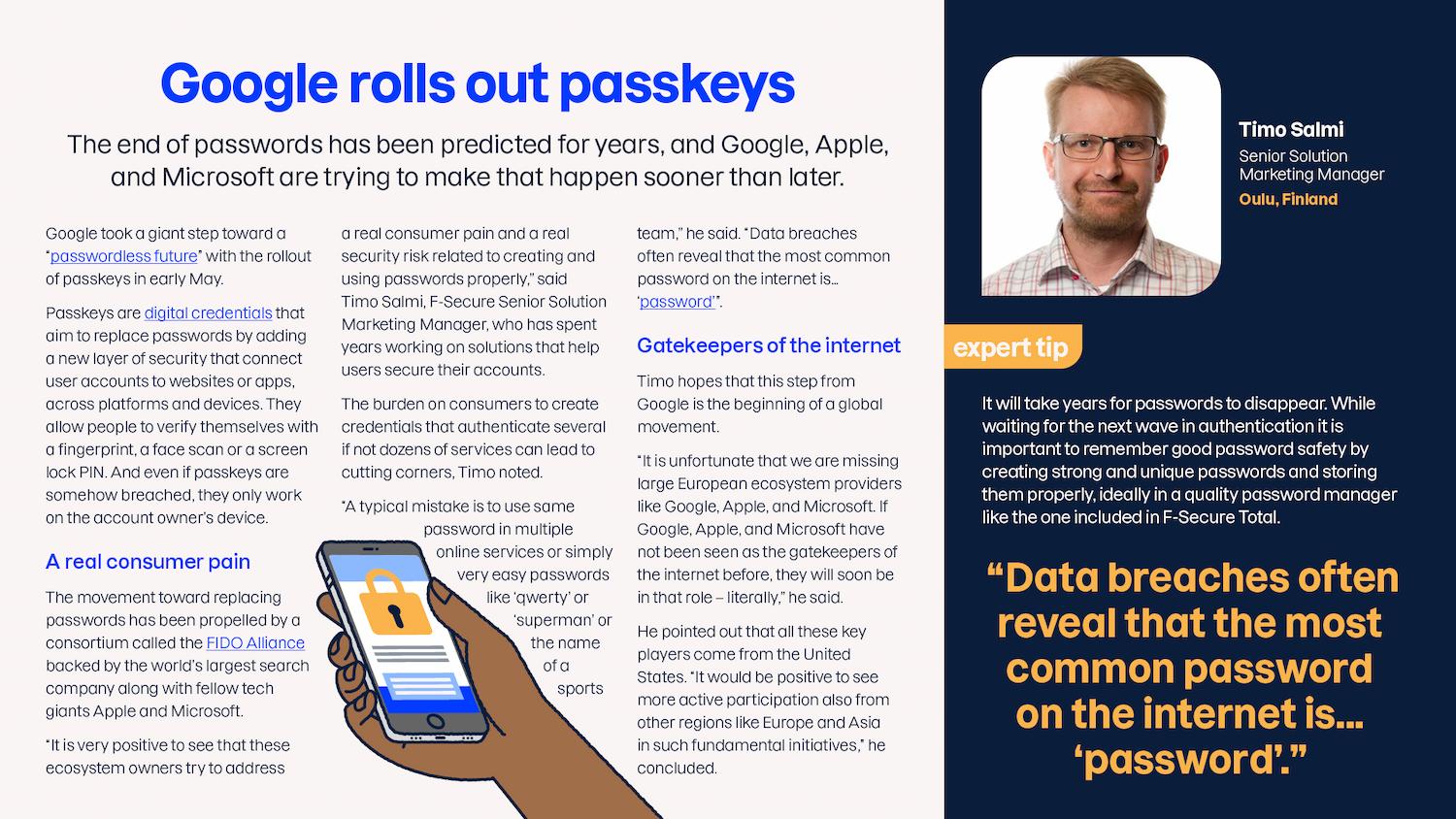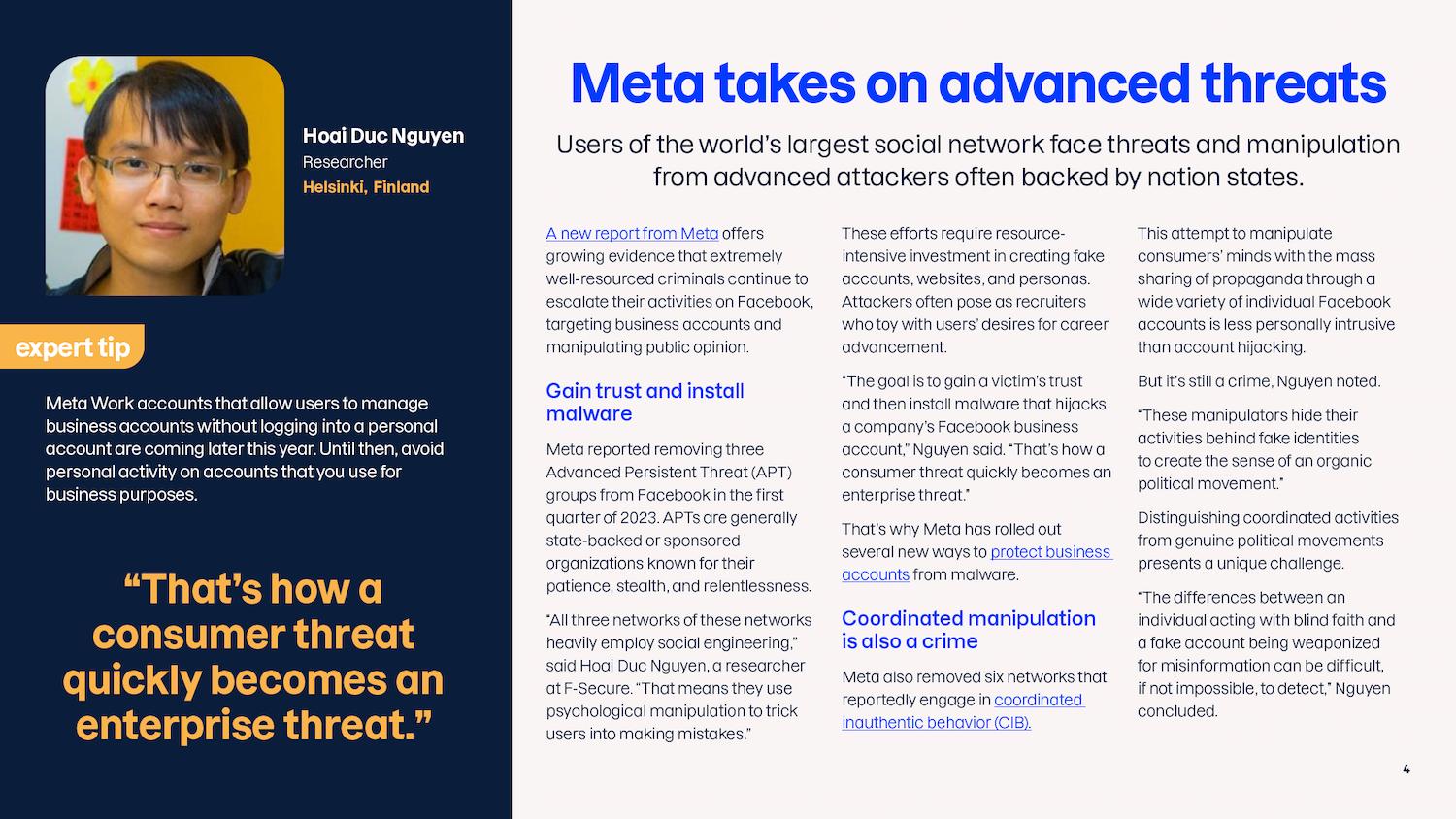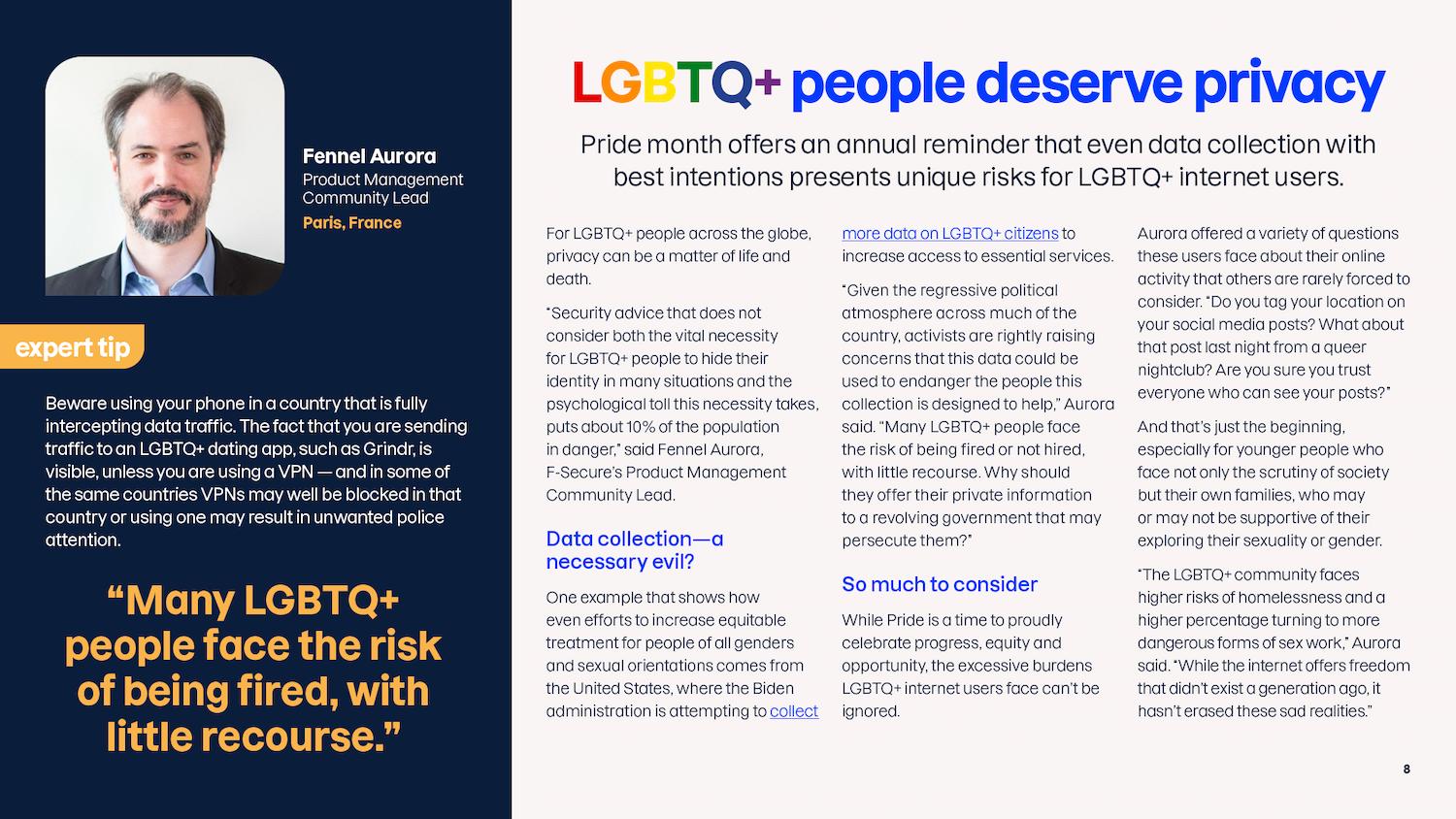- Products
- Renew
- Articles
- Support
- Free tools
- F‑Secure Link CheckerCheck if you can open a link safely
- F-Secure Text Message CheckerCheck with AI if a text message is a scam
- F‑Secure Online Shopping CheckerCheck for free if a website is safe to buy from
- F‑Secure Identity Theft CheckerCheck if your personal information has been part of a data breach
- F‑Secure Strong Password GeneratorCreate strong passwords for free
- F‑Secure IP CheckerCheck your IP address and location
- F‑Secure Online ScannerScan and clean your PC for free
- F‑Secure Router CheckerIs your internet connection safe?
- View all free tools
- Scam protection
- My F‑Secure

F‑Alert May: discover the latest consumer threats today
In the latest edition of F‑Alert, we look at how an effort to replace passwords is gaining steam, we help you tell which images might have been generated by AI and we reveal what Meta is doing to counter the nation-state attackers who may target you on Facebook.
The end of the password has been predicted for years, but it may finally have begun. In May, Google began rolling out passkeys, which promise a safer way to secure your accounts. Meanwhile, the growing power and availability of AI-image generators means users need better skills to identify fake images. We offer you some clear tips, so you don’t get fooled. And we also look at how advanced attackers that may be backed by nation-states target users on Facebook and what Meta is doing to clean up the platform.
Google rolls out passkeys
Passkeys are digital credentials that aim to replace passwords with a new layer of security that allows people to verify themselves with a fingerprint, a face scan or a screen lock PIN. And even if passkeys are somehow breached, they only work on the account owner’s device. F‑Secure Senior Solution Marketing Manager Timo explains why this is a positive step for consumers and a wakeup call for European providers.
Meta takes on advanced threats
Meta reported removing three Advanced Persistent Threat (APT) groups from Facebook in the first quarter of 2023. APTs are generally state-backed or sponsored organizations known for their patience, stealth, and relentlessness. Hoai Duc Nguyen, a researcher at F‑Secure, explains how these skilled attackers use psychological manipulation to exploit users eager to make connections online.
LGBTQ+ people deserve privacy
Pride month offers an annual reminder that even data collection with best intentions presents unique risks for LGBTQ+ internet users. Fennel Aurora, F‑Secure’s Product Management Community Lead, points out that people face the risk of being fired, or much worse, due to their gender identity or sexual orientation. He points out that while the internet offers many new freedoms, that means very little if LGBTQ+ people don’t have the assurance that their private data will remain private.
How to detect AI images
Believable fake digital images have littered the internet for decades, but increasingly powerful image generators like Midjourney, DALL-E, and Stable Diffusion can now create convincing fakes in seconds. Laura Kankaala, F‑Secure’s Threat Intelligence Lead, offers some tips on how to detect inauthentic images and, even more importantly, adds some advice on what you should do if you can tell an image isn’t real.
Get all these stories and highlights in May’s F‑Alert
Our monthly F‑Alert threat reports guide you through the biggest cyber security stories as they develop around the world. Delivering what matters most when it comes to protecting your data and devices.
Every month F‑Alert tells you what’s happening in cyber security. Even more importantly, we tell you why it’s happening. And our experts provide simple advice to help secure your digital moments.




